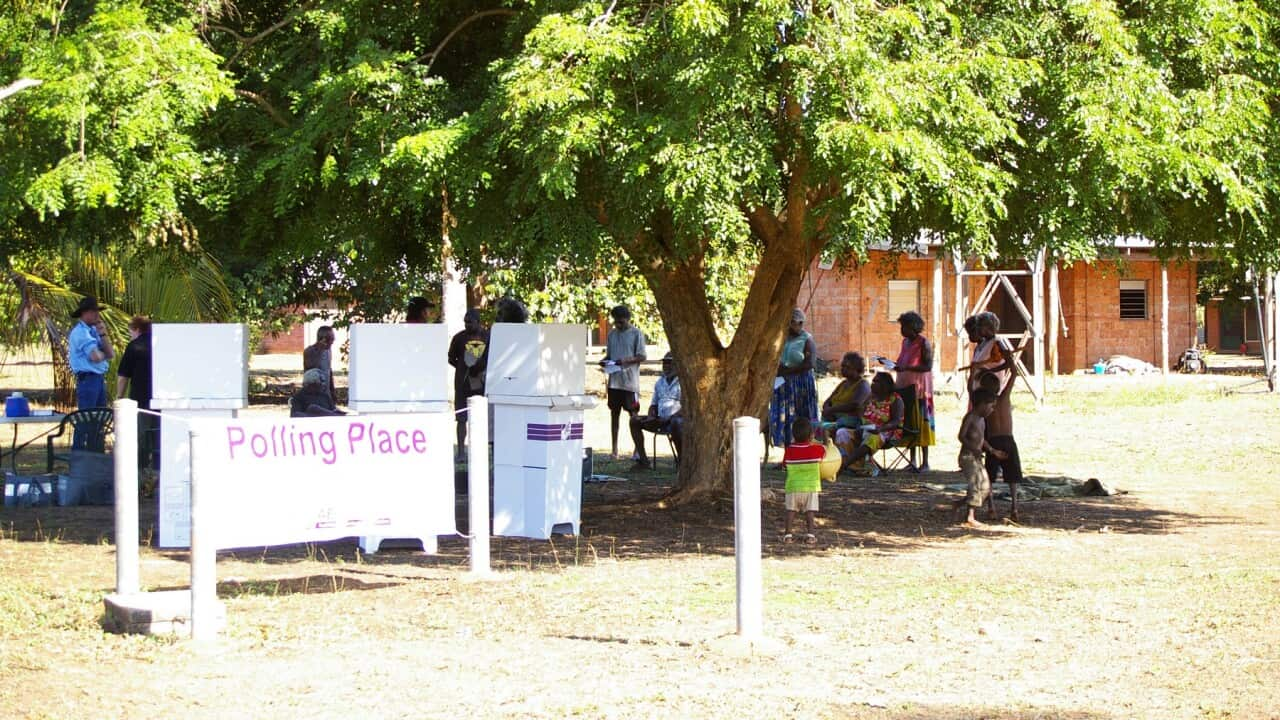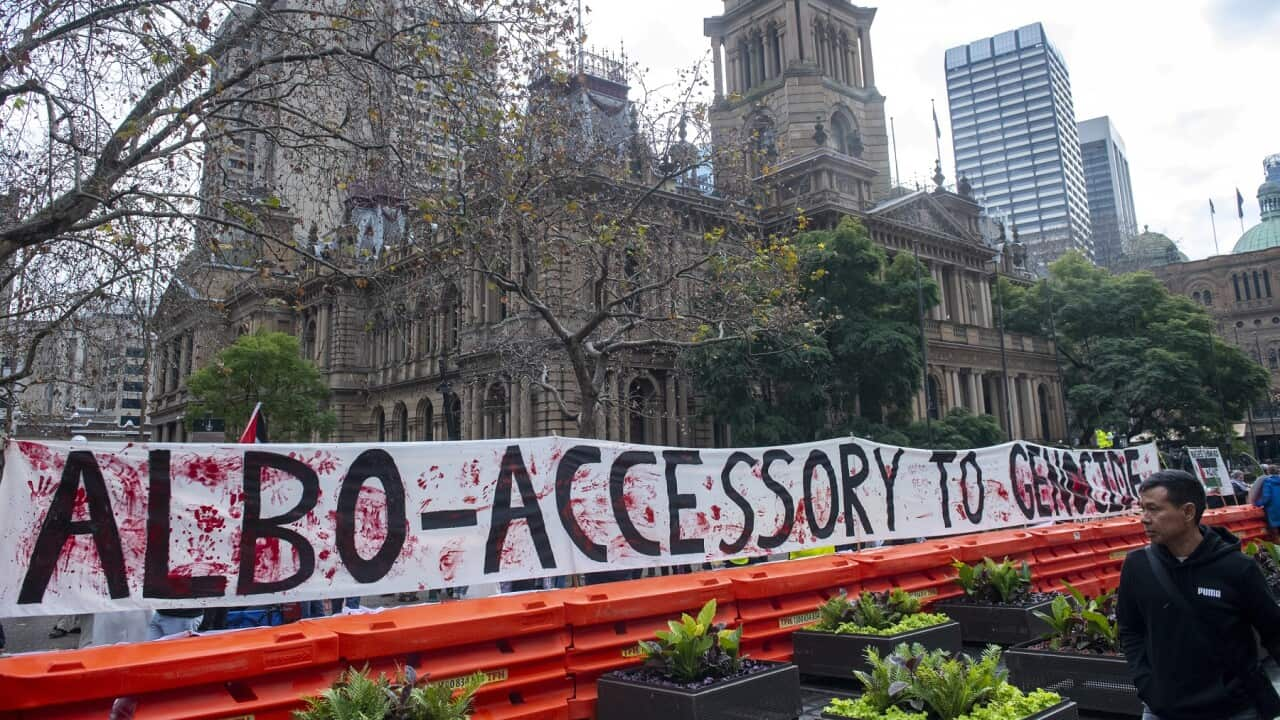TRANSCRIPT
Electoral enrolment is currently at an all-time high for this year’s federal election.
But voter turnout – the number of people who vote as a percentage of those enrolled – has been in decline since 2007.
Alex Morris is from the Australian Electoral Commission.
"We saw lower turnout in some of the most remote electorates around Australia- we're talking places like Lingiari in the Northern Territory and electorates like Durak and O'Connor in Western Australia."
The seat of Lingiari recorded the lowest rate in the country, with one in three enrolled voters not casting a ballot.
The seat has been held by Labor since 2021, but its lead has fallen to a slim margin of 1.7 per cent.
With a close election predicted, turnout could be crucial.
Lingiari has the highest proportion of Indigenous people of any electorate in the country, and voting here is mostly done through mobile polling stations.
Community leaders like Matthew Ryan, who is the chairman of the Northern Land Council, say more flexibility is needed.
"Transportation is a big issue in our communities. Especially in remote communities that are very isolated, especially the homelands who are very disadvantaged… The AEC should be flexible, and they are obligated to make sure that every vote matters, regardless of where they are."
As well as logistical challenges, Mr Ryan says many people in remote communities have grown disillusioned with politics.
"The disadvantage - when I say disadvantage: the overcrowding, the cost of living, the infrastructure - people have lost trust with the government."
Alex Morris says the Electoral Commission has been working hard to increase engagement.
"The AEC is working with our Indigenous electoral participation program to have a community-led approach to not just educating locals about enrolment, but about turnout and participation in elections as well."
Ahead of election day on Saturday May 3, 70 remote polling teams are visiting 480 locations across the country.
It remains to be seen whether this translates to greater participation in remote communities.













